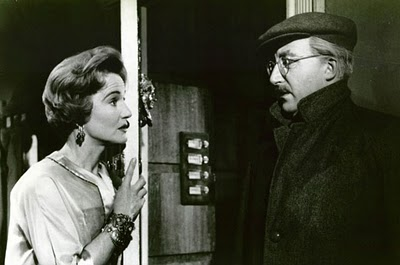James Thurber (1894-1961) is the prominent American writer and cartoonist who is famous for his ironic short stories with the elements of mystery and life drama. Thurber developed his talent of a writer working as an editor and contributor in The New Yorker magazine where his short stories were regularly published.
Such short stories as “A Couple of Hamburgers” and “The Unicorn in the Garden” are famous for their humor and demonstration of the people’s everyday life issues in the comic manner when “The Catbird Seat” and “The Whip-Poor-Will” are based on the elements of mystery, and the topics of tensions in human relations and murders are discussed in these stories.
The exciting plots of such Thurber’s works as “The Secret Life of Walter Mitty” and “The Catbird Seat” were also adapted to be used in films.
Thus, “The Catbird Seat” which was written in 1942 was later adapted for the film known as The Battle of the Sexes (1959) directed by Charles Crichton (Grauer, 1995). “The Catbird Seat” can be chosen as an example to analyze James Thurber’s approach to developing the mystery genre in his comic short stories.


“The Catbird Seat” is a short story about the conflict of a man and a woman discussed as an opposition of sexes where the masculine features are demonstrated belonging to a woman, and a man is presented as a weak person. However, these characteristics are used by the author in order to represent the absurd of such stereotypes and situations. The story begins with stating the intention of Mr. Martin as the main character to kill Mrs. Barrows, the female character of the story. The author presents:
It was just a week to the day since Mr. Martin had decided to rub out Mrs. Ulgine Barrows. The term “rub out” pleased him because it suggested nothing more than the correction of an error – in this case an error of Mr. Fitweiler. Mr. Martin had spent each night of the past week working out his plan and examining it (Thurber, 2001, p. 279).
Mr. Martin is depicted by the author as a quiet person who follows his well-ordered life and opposes any changes which can be discussed as a progress and reformation. Mr. Martin’s decision to kill Mrs. Barrows revealed at the beginning of the story makes readers to focus on the intrigue, and this element contributes to creating the effect of suspense.
However, it is important to note that Thurber discusses the elements of the plot in the humorous manner, and this effect can be considered as more important in comparison with the role of the murder intentions in the story.
Mr. Martin and Mrs. Barrows are demonstrated in their conflict, and the development of this conflict based on the difference of visions and characters can lead to killing Mrs. Barrows as it is expected by the readers (Thurber, 2001). Nevertheless, Thurber uses the devices of the mystery genre in order to present the unexpected ending in the other manner, and emphasize the different aspects of the story.
Thus, Mr. Martin, an efficient worker who is fixed on the order in his work and life, changes the decision to kill Mrs. Barrows who is characterized by the active and even furious temper.
The author changes the main characters in their roles, and Mr. Martin begins to take the active position in the interpersonal conflict in spite of the fact he gives up the idea of killing and focuses on peaceful but rather witty techniques to fight Mrs. Barrows (Thurber, 2001). At this stage, the story can be described as more ironic and humorous than mystery one because of the atmosphere created by the author and his style.
Nevertheless, as it can be observed with references to the cited passage, Thurber is inclined to refer to the mystery genre as the source for developing his comic story based on the conflicts and misunderstandings.
From this perspective, the writer uses mild literary techniques of the mystery genre in order to create the basics for his short story. On the contrary, the story of a murder is presented in detail in the writer’s “The Whip-Poor-Will” which can be discussed as the vivid example of Thurber’s approach to the mystery genre.
In spite of the fact that the majority of James Thurber’s short stories cannot be discussed as belonging to the mystery genre, the author uses the associated techniques of suspense and the topics of murders and enigmas in many his works.
Thus, the unique combination of mystery and comic genres is presented in such James Thurber’s short stories as “The Catbird Seat”. Although the humorous effect is obvious, the discussed story is based on the mysterious plot and clearly stated character’s violent intentions which are developed in the author’s perfect manner.
References
Grauer, N. (1995). Remember laughter: A life of James Thurber. USA: University of Nebraska Press.
James Thurber. (n.d.). Web.
The Battle of the Sexes. (n.d.). Web.
Thurber, J. (2001). The Catbird Seat. In T. Hillerman & O. Penzler (Eds.), The best American mystery stories of the century (pp. 279-287). USA: Houghton Mifflin Harcourt.